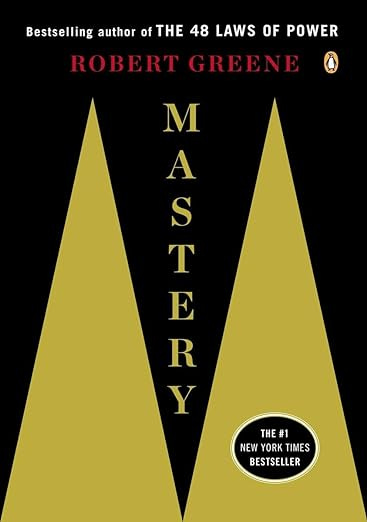Robert Greene on making time your ally (#24)
And why a long-term perspective is vital to success
You must come to embrace slowness as a virtue in itself.
-Robert Greene-
Darwin mastered the change in animals over time.
Mozart did it with music, Martha Graham with dance, Henry Ford with transportation.
But what do they all have in common? Is there something similar about their processes that we can learn from? Patterns that anyone can apply in their own pursuits no matter the field?
In Mastery, Robert Greene argues commonalities do exist and that we can copy them.
Greene uses the stories of these and other accomplished figures of history along with his own experience, to show that though pursuits vary widely, master strategies are aligned.
There are six phases of Mastery—e.g. discovery, apprenticeship, and “fusing the intuitive with the rational”— but this OGT is about the perspective that pervades them all.
A slow one.
Time Is Your Ally
It is essential to build into the creative process an initial period that is open-ended. You give yourself time to dream and wander, to start out in a loose and unfocused manner.
Greene himself spent years wandering and open-ended.
He spent much of his 20s and 30s an out of work writer, taking on 50 or so different other jobs to pay bills—from production assistant to construction worker to magazine editor. He didn’t complete his first book, until he was 40.1
But similar to
, who didn’t get his first real writing job until around 40, and didn’t publish his first book until he was 52, Greene game to view that time as an advantage.One that all masters use.
You must come to embrace slowness as a virtue in itself…
…You take pleasure in the laborious research process; you enjoy the slow cooking of the idea, the organic growth that naturally takes shape over time. You do not unnaturally draw out the process, which will create its own problems (we all need deadlines), but the longer you can allow the project to absorb your mental energies, the richer it will become. Imagine yourself years in the future looking back at the work you have done. From that future vantage point, the extra months and years you devoted to the process will not seem painful or laborious at all. It is an illusion of the present that will vanish. Time is your greatest ally.
Greene acknowledges that it can be hard to see that while you’re learning and impatient.
Whether your project takes months or years to complete, you will always experience a sense of impatience and a desire to get to the end. The single greatest action you can take for acquiring creative power is to reverse this natural impatience.
How? Besides the tactic above of imagining the future, Greene says what carries most masters through is their infatuation with the subject.
This intense connection and desire allows them to withstand the pain of the process—the self-doubts, the tedious hours of practice and study, the inevitable setbacks, the endless barbs from the envious. They develop a resiliency and confidence that others lack. In our culture we tend to equate thinking and intellectual powers with success and achievement. In many ways, however, it is an emotional quality that separates those who master a field from the many who simply work at a job. Our levels of desire, patience, persistence, and confidence end up playing a much larger role in success than sheer reasoning powers.
Feeling motivated and energized, we can overcome almost anything.
The OGT
Long-term views are hard because patience and hope are hard to sustain. But it’s also hard to think of a hero of mine who didn’t take a long-term view.
Jeff Bezos is famously long-term oriented. Paraphrasing him in Invent and Wander: invention takes wandering, and wandering needs time, which requires a long term view.
Henry Ford was of the same mind, spending over two decades on his road car.
After a friend quit comedy, Sebastian Maniscalco asked himself when he would quit. He answer: never. “I told myself that my hard limit of demoralizing nights was infinity.”
So, even though it’s hard. Even though it takes constant reminders. I try to read everything I can that brings the idea of long-term back to me.
Mastery is such a book.
That book was The 48 Laws of Power— a huge success.





